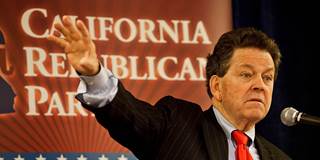John Kenneth Galbraith noted in 1973 that establishment economics had become the “invaluable ally of those whose exercise of power depends on an acquiescent public.” If anything, economists’ embrace of that role has grown stronger since then.
NEW DELHI – Mainstream economics has a tendency to decide on some “established” conclusions, and then hold to them, notwithstanding all evidence to the contrary. This is bad enough, but what may be worse for a discipline that lays claim to being a science is the lack of insistence on the replicability of empirical results. This is both standard and essential in most natural sciences; in economics, by contrast, there is mostly indifference and occasionally even fierce resistance to it. In some cases, the data that must be used to replicate conclusions are denied to other researchers.
The reason is often deeply political, because the results that are promoted and disseminated accord with visions of the economy that support particular ideological positions and associated policy stances. For example, empirical work that supports fiscal austerity or market deregulation is cited extensively and becomes the basis for advancing those particular policy outcomes. Very rarely is such work subject to the scrutiny – for example, challenging its assumptions and questioning its statistical procedures – that would be the norm for research in the natural sciences.
Consider the claim made by Stephen Moore and Arthur B. Laffer that the Trump tax cuts in the US would not only pay for themselves, but also actually bring down the government deficit while generating more private investment. Their claim was completely wrong, but somehow economic reality seems to have had little impact on those who continue to believe the assertion of the Laffer Curve that lower tax rates will generate higher tax revenues.

NEW DELHI – Mainstream economics has a tendency to decide on some “established” conclusions, and then hold to them, notwithstanding all evidence to the contrary. This is bad enough, but what may be worse for a discipline that lays claim to being a science is the lack of insistence on the replicability of empirical results. This is both standard and essential in most natural sciences; in economics, by contrast, there is mostly indifference and occasionally even fierce resistance to it. In some cases, the data that must be used to replicate conclusions are denied to other researchers.
The reason is often deeply political, because the results that are promoted and disseminated accord with visions of the economy that support particular ideological positions and associated policy stances. For example, empirical work that supports fiscal austerity or market deregulation is cited extensively and becomes the basis for advancing those particular policy outcomes. Very rarely is such work subject to the scrutiny – for example, challenging its assumptions and questioning its statistical procedures – that would be the norm for research in the natural sciences.
Consider the claim made by Stephen Moore and Arthur B. Laffer that the Trump tax cuts in the US would not only pay for themselves, but also actually bring down the government deficit while generating more private investment. Their claim was completely wrong, but somehow economic reality seems to have had little impact on those who continue to believe the assertion of the Laffer Curve that lower tax rates will generate higher tax revenues.